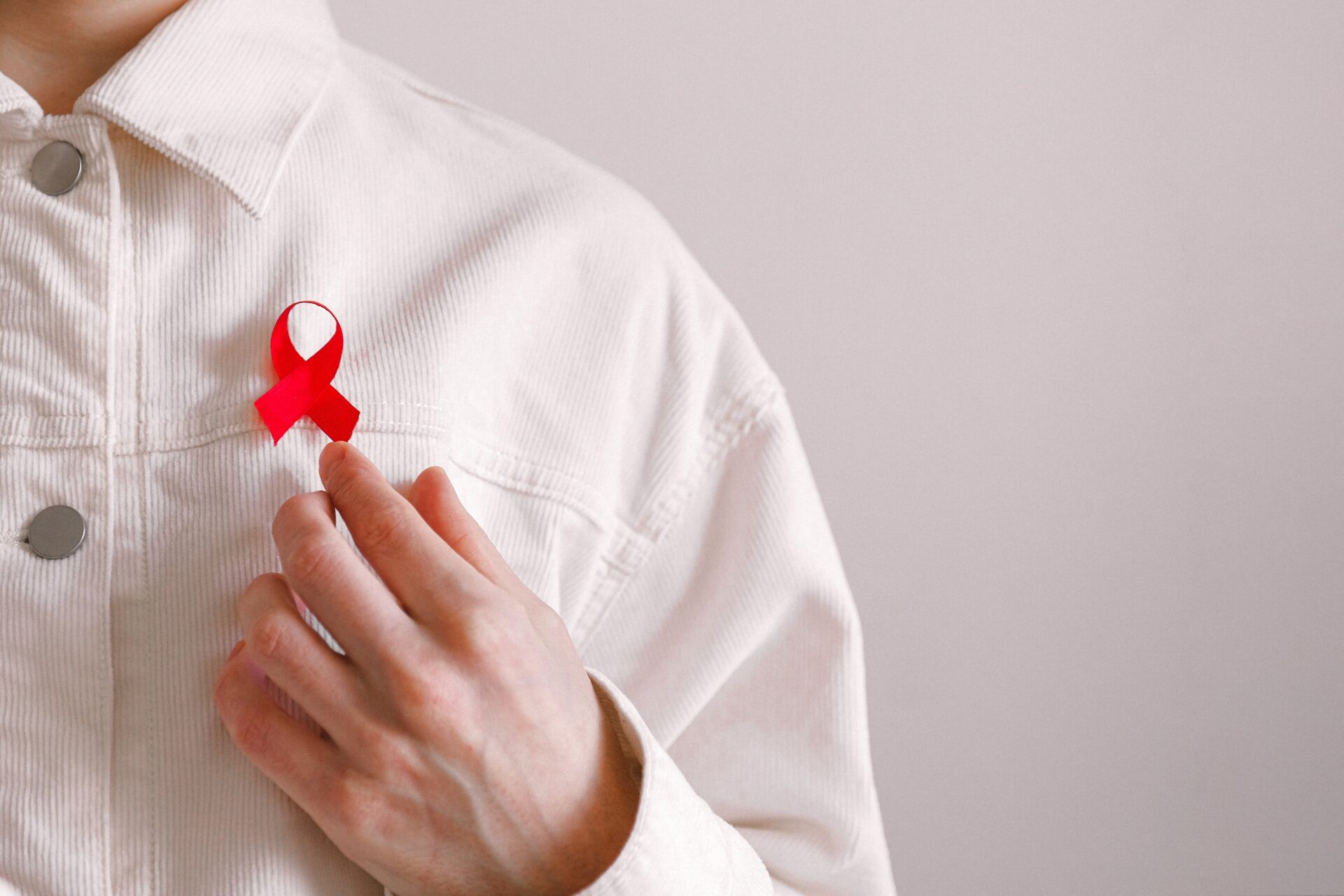World Aids Day: Charity official ‘optimistic’ about reaching 2030 HIV goals
"We are making good progress, but it's not the same progress for everybody"

An official for the National Aids Trust (NAT) has said he is “optimistic” that the UK will reach it’s 2030 goal of no new HIV transmissions.
Adam Freedman, NAT’s Policy Research and Influencing Manager, spoke to Attitude ahead of World Aids Day (Friday 1 December) about the current situation regarding HIV and Aids.
As well as celebrating successes with the recently announced opt-out testing expansion and improvements in fertility treatment for people with HIV, the charity is also aware of the areas of improvement.
While England, Scotland, and Wales all have functioning HIV Action Plans, Northern Ireland is lagging behind. “Northern Ireland is possibly a bit of a risk,” Adam told Attitude. There’s also concern that not everyone is seeing HIV messaging and being picked up by health services.

Can I get your reaction to opt-out testing being expanded?
That was fantastic news. There are a lot of people currently living with HIV who don’t know that they have HIV who will have the opportunity to get diagnosed, get linked into the care, and then very soon, they won’t be able to pass the virus on. It will get us much closer to our goal of eliminating new transmissions by 2030.
“40% of women who go to sexual health services don’t get offered an HIV test, which is shocking”
Broadly, where do you think we are in terms of reaching that 2030 goal? Are you optimistic that we’ll reach that goal?
I think we’re making good progress. There’s a lot more we can do [and] the opt-out testing expansion will help with that. The real story at the minute is about the disparities in the response and who is accessing this treatment. White gay and bisexual men, in particular, are much easier to reach. But women are being failed. 40% of women who go to sexual health services don’t get offered an HIV test, which is shocking. And then Black communities, in particular, struggle to get tested and get treatment. So, we are making good progress, but it’s not the same progress for everybody.
Do you have a sense that everyone in the HIV charitable sector is united?
The sector is quite united. We acknowledge that a huge amount of work has been done and we need to give the government credit where it’s due because they have funneled a lot of money, time, and care into having a national HIV Action Plan. It’s the same in Scotland and Wales. The sense from the sector is we need to reach everybody. That’s the challenge now. [But] we know that we have the tools to bring the epidemic to an end by 2030.
With health being devolved, are those Action Plans on the same level or is there a danger of patchy results across the UK?
England, Scotland, and Wales have all got the same 2030 goal. I don’t think there’s much risk of divergence in Great Britain. There’s no functioning executive in Northern Ireland and Northern Ireland hasn’t been able to make progress. I think Northern Ireland is possibly a bit of a risk.
“If they don’t do it, they’re going to be scuppering the confidence in tackling the HIV response”
As someone who works in policy are you getting a good response in conversations with the government?
I think we have good conversations. They are committed in principle to the 2030 goal, the Action Plan is something that they do take seriously. It’s about holding their feet to the fire. And it’s the same with the Action Plan. It’s about making sure that they follow through on their commitments because the commitment is fantastic but if it doesn’t happen, then the goal may not be reached.
Are you confident the government will stick to its commitments given what we’ve seen lately with the ban on ‘conversion therapy’?
I’m personally very frustrated, as is NAT, that the ‘conversion therapy’ ban continues to stall. We support a full and inclusive ban. But with health, it becomes less contentious. We’ve had conversations with officials saying that they are actively engaging with the Cabinet office to make sure this happens. So I’m optimistic. If they don’t do it, they’re going to be scuppering the confidence in tackling the HIV response so I would absolutely hope they will [stick to the commitments]. But I think the scientific advice behind it makes it much harder for them to not follow through on it and probably could be up to legal challenges [if they don’t].
“We’re hopeful that in the spring or summer of next year, the legislation will be taken off the statute book”
What are the continuing challenges when it comes to the discrimination that people with HIV are facing?
I was shocked by the amount of discrimination that still goes on. In the last year, we’ve had between 75 and 100 cases of people coming to us to need direct support. You’ve got people having their HIV status shared without their consent, that’s the most common one. That happens in employment, healthcare, in people’s personal lives. We’ve had cases of the police doing this. We’ve been working on the Data Protection and Digital Information Bill, we tried to get it amended but it didn’t pass and we were very disappointed. But we’re going to campaign on that in the House of Lords because we think everyone’s health data needs to be protected.
We see people get refused access to private services, particularly tattoos, piercings, and cosmetic surgery, which is without scientific basis because there’s no reason for it. We’ve been working with the Health and Safety Executive, the UK’s health and safety regulator, to try and get them to update their workplace guidance on how blood-borne viruses like HIV are transmitted because we think they’re about 20 years old.
You’ve had more success on issues around fertility, am I right?
We’ve campaigned on this issue for several years. The Human Fertilisation and Embryology Act 1990 currently doesn’t allow people living with HIV to donate sperm or eggs and therefore access fertility treatment. There’s one tiny exception: if you’re in a heterosexual relationship. That means in practice LGBTQ+ people living with HIV can’t access fertility treatment. This is a real issue. There’s no scientific reason for keeping this ban in place. The community has really rallied around us, which has been fantastic. Finally in October, we got a commitment that the government will be changing this discriminatory law for everyone living with HIV who’s undetectable across the whole of the UK, so all four nations. It was a really great victory. We’re hopeful that in the spring or summer of next year, the legislation will be taken off the statute book.
“The 1980s tombstone adverts related were so effective in creating fear”
With U=U, why do you think that message isn’t breaking through to the wider population?
I always say that the 1980s tombstone adverts related were so effective in creating fear. That image of HIV as this thing to be terrified of just remains in the public psyche in the UK and it’s not shifted. I think a public awareness campaign about U=U could do wonders for pretty much every part of the HIV response. And I also think some people know you can be treated and think that HIV is over. And they don’t have to engage.
Do you think it has to come from the government?
It would require that level of intensity and resource that the tombstone had in the 80s. But I think it would do wonders.
The National Aids Trust’s t-shirt collaboration with designer John Booth and EVERPRESS is available again for a limited time. Order here. All profits go to the National Aids Trust.
